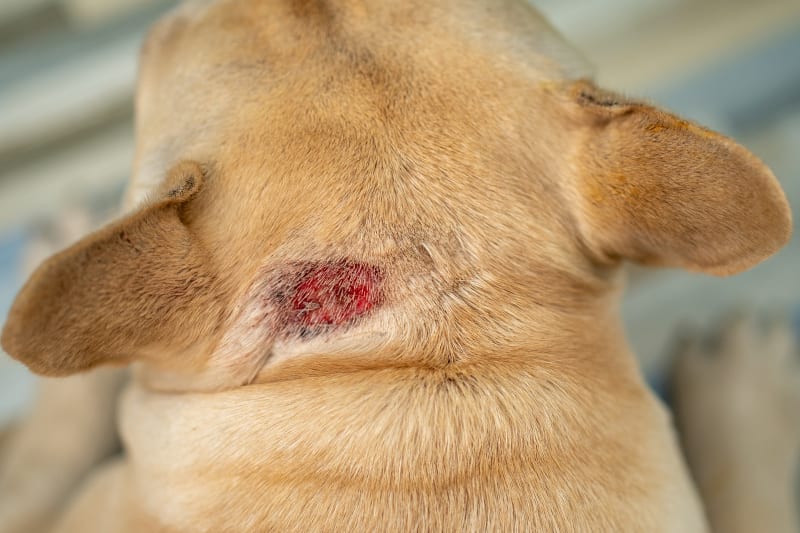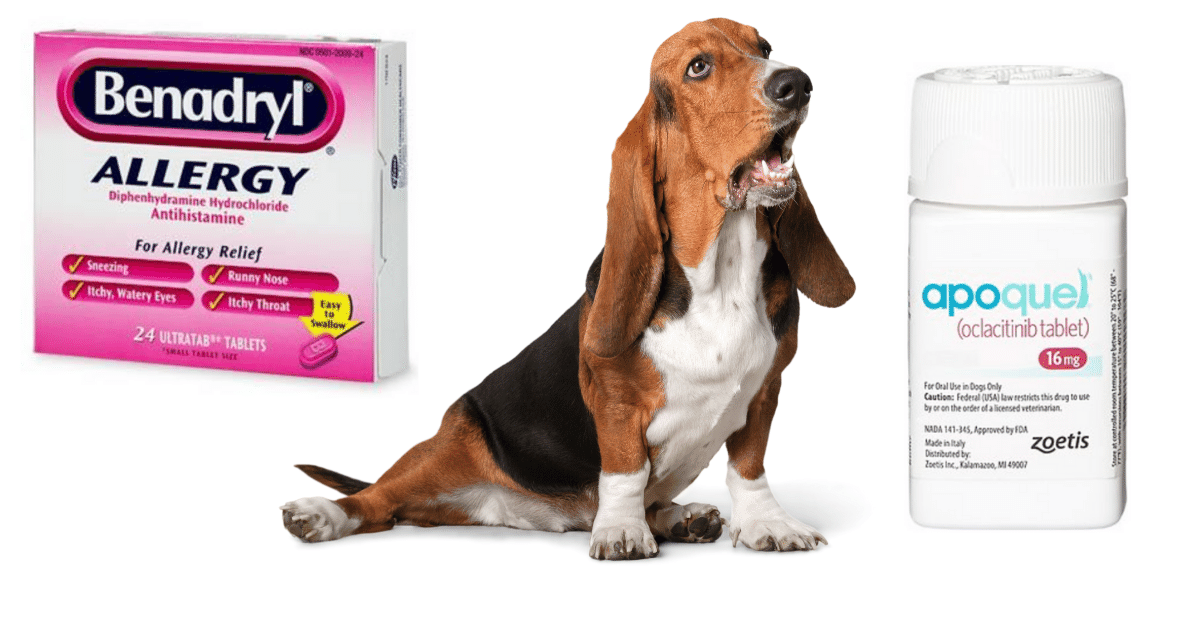- Skin Allergy Medicine for Dogs: Signs, Solutions, and Treatments
- Introduction
- Common Signs of Skin Allergies in Dogs
- Causes of Skin Allergies in Dogs
- Diagnosing Skin Allergies in Dogs
- Types of Skin Allergy Medicines for Dogs
- Natural and Over-the-Counter Options
- How to Choose the Right Treatment
- Preventative Care and Management Tips
- When to See a Specialist
- Common Breeds Prone to Skin Allergies
- Importance of Regular Veterinary Checkups
- Conclusion
- FAQS
- Introduction
Skin Allergy Medicine for Dogs: Signs, Solutions, and Treatments
Introduction
Just like humans, dogs can suffer from skin allergies that cause constant itching, discomfort, and even serious infections if left untreated. As a pet owner, watching your dog scratch, bite, or lick excessively can be heartbreaking—not to mention frustrating when you’re unsure of the cause or the right solution. Skin allergies in dogs are more common than many people realize, and they can be triggered by anything from food ingredients to environmental allergens like pollen or dust mites. Fortunately, there are many effective treatments available today, including both prescription and over-the-counter options.
This guide will walk you through the key signs to watch for, explore various types of skin allergy medicine for dogs, and offer practical advice on choosing the right treatment for your furry friend. With the right care and information, you can help your dog find relief and get back to living a happy, itch-free life.

Common Signs of Skin Allergies in Dogs
Skin allergies in dogs often show up through persistent itching, scratching, licking, or chewing—especially around the paws, ears, belly, or armpits. You might notice red or inflamed skin allergy medicine, hair loss, or scabs where your dog has been scratching. Some dogs develop hot spots or skin infections due to excessive irritation. Behavioral changes like restlessness or irritability can also indicate discomfort. Recognizing these signs early is essential, as untreated skin allergies can worsen over time and lead to secondary infections that require more intensive care.
Causes of Skin Allergies in Dogs
There are several common causes of skin allergies in dogs, and identifying the trigger is key to effective treatment. Environmental allergens like pollen, dust mites, and mold are frequent culprits, especially during seasonal changes. Food allergies—often to proteins like chicken, beef, or dairy—can also lead to chronic skin allergy medicine issues. Flea allergy dermatitis is another major cause, where even one flea bite can cause severe reactions. Additionally, dogs may react to shampoos, cleaning products, or certain fabrics, resulting in contact allergies.
Diagnosing Skin Allergies in Dogs
Proper diagnosis is essential when dealing with skin allergies in dogs, as the symptoms can often mimic other skin allergy medicine conditions. A veterinarian will typically begin with a physical examination and a detailed history of your dog’s symptoms and environment. Diagnostic methods may include skin scrapings, skin allergy medicine testing, blood work, or an elimination diet to rule out food allergies. In some cases, a referral to a veterinary dermatologist may be recommended. Accurate diagnosis helps ensure that the treatment plan addresses the root cause and provides lasting relief for your dog.
Types of Skin Allergy Medicines for Dogs
There are several types of medications available to treat skin allergies in dogs, each suited to different causes and severities. Antihistamines can help manage mild symptoms, while corticosteroids may be prescribed for short-term relief of inflammation and itching. Immunosuppressive drugs like Apoquel and Cyclosporine target the immune response more precisely. Injectable biologics like Cytopoint offer long-lasting relief with fewer side effects. Your vet will help determine the best option based on your dog’s condition, overall health, and response to previous treatments.

Natural and Over-the-Counter Options
For mild cases or as a complement to prescription treatments, natural and over-the-counter options can offer effective relief for dogs with skin allergies. Medicated shampoos with ingredients like oatmeal, aloe vera, or chlorhexidine can soothe irritated skin allergy medicine and reduce itching. Supplements containing omega-3 fatty acids, quercetin, or probiotics may also help support skin health and reduce allergic reactions. Some pet owners find success with herbal remedies, but it’s essential to consult a veterinarian before trying any alternative treatments. Even over-the-counter antihistamines should only be given under veterinary guidance.
How to Choose the Right Treatment
Choosing the right skin allergy medicine for your dog involves considering several factors, including the skin allergy medicine cause, the severity of symptoms, and your dog’s overall health. Always consult your veterinarian before starting any new treatment, as they can recommend the most appropriate option based on diagnostic results. It’s also important to monitor how your dog responds to medication, including any side effects or changes in behavior. In some cases, a combination of treatments—such as prescription medicine with topical care—may provide the best and most lasting relief.
Preventative Care and Management Tips
Preventing skin allergies in dogs involves consistent care and proactive habits. Regular grooming helps remove allergens like pollen and dust from your dog’s coat, while medicated baths can soothe sensitive skin and reduce flare-ups. Using flea prevention treatments year-round is crucial, especially for dogs prone to flea skin allergy medicine dermatitis. Feeding a high-quality, hypoallergenic diet may also help reduce food-related reactions. Keeping your home clean—vacuuming often, using air purifiers, and washing bedding frequently—can further limit environmental allergens. Together, these steps can significantly improve your dog’s skin health and comfort.
When to See a Specialist
If your dog’s skin allergies persist despite treatment or symptoms worsen over time, it may be time to consult a veterinary dermatologist. Specialists have access to advanced diagnostic tools like intradermal skin testing and can develop highly personalized treatment plans. Chronic or complex cases, including those with recurring infections or multiple allergies, often benefit from this level of care. Seeking expert help early can prevent long-term damage to your dog’s skin and reduce their discomfort, especially when common treatments aren’t delivering the desired results.

Common Breeds Prone to Skin Allergies
While any dog can develop skin allergies, some breeds are more genetically predisposed to allergic conditions. Breeds like Labrador Retrievers, Golden Retrievers, Bulldogs, Boxers, Shih Tzus, and West Highland White Terriers often experience skin-related issues due to their genetics and skin structure. These breeds may require more proactive skin allergy medicine management, including regular vet visits, specialized diets, and consistent skin care routines. Knowing your dog’s breed-specific risks can help you take preventive steps early and reduce the chances of long-term skin problems.
Importance of Regular Veterinary Checkups
Routine veterinary checkups are essential in managing and preventing skin allergies in dogs. Regular visits allow your vet to monitor your dog’s overall health, catch early signs of allergies, and adjust treatments as needed. Allergic reactions can evolve over time, and what works today may not be as effective later. Ongoing care helps ensure medications are still appropriate, and it gives your vet the opportunity to recommend additional support like dietary changes, supplements, or testing. Preventive healthcare is one of the best ways to keep your dog’s skin healthy and their allergies under control.
Conclusion
Skin allergies in dogs can be challenging, but with the right approach, they are manageable. By learning to recognize the signs, understanding the causes, and exploring both medical and natural treatment options, you can make informed decisions for your pet’s health. Always work closely with your veterinarian to choose the most effective and safest treatment plan. Preventative care and early intervention play key roles in managing symptoms and improving your dog’s quality of life. With patience and proper care, your furry friend can enjoy healthier skin and a happier, more comfortable life.
You Can Also Read: Top 10 Best Farm Animals
FAQS
Can I give my dog human allergy medicine?
Some human antihistamines, like Benadryl, can be used for dogs in specific doses, but always consult your vet first to ensure safety and proper dosage.
How long does it take for allergy medicine to work in dogs?
This depends on the medication. Some work within hours (like steroids), while others, such as immunotherapy or supplements, may take weeks to show results.
Can skin allergies go away on their own?
It’s unlikely. Most skin allergies require management and ongoing care, especially if they stem from chronic issues like environmental allergens or food sensitivities.
Are skin allergies in dogs contagious?
No, skin allergies are not contagious. However, secondary infections caused by scratching may require treatment.
Can diet help with skin allergies in dogs?
Yes, a hypoallergenic or limited-ingredient diet can reduce food-related skin reactions in sensitive dogs. Always consult your vet before changing your dog’s food.

[…] for both you and your pet, and may even point to underlying issues that need attention. Whether your dog sleep is hyperactive, anxious, or simply struggles to settle down, learning how to help them sleep instantly overnight […]